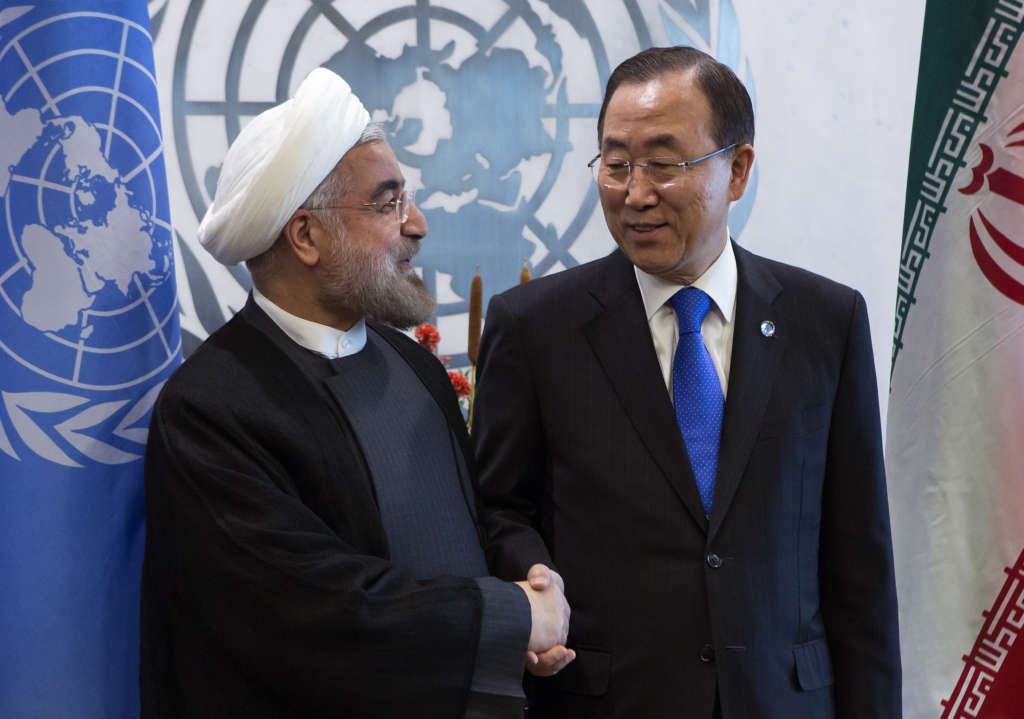New York-United Nations Secretary General Ban Ki-Moon asked Iran to encourage Houthis to negotiate rationally at the time when the ministerial quartet on Yemen met in New York and approved Kerry’s 72-hour truce.
A statement issued by the U.N. spokesman following the meeting between Ban Ki-moon and Iranian President Hassan Rouhani said: “The secretary-general stressed the need to find a political solution to the conflicts in Syria and Yemen, and sought Iran’s support in facilitating the resumption of peace talks for both countries.”
The secretary-general said that the Houthis needed to come to the table in a spirit of pragmatism and compromise. “The same applies with regard to the Syrian regime.”
Regarding the Iranian nuclear file, Ban underlined the importance of the full implementation of the Joint Comprehensive Plan of Action (JCPOA), also known as the Iran nuclear deal, and Security Council resolution 2231, adopted in 2015, the spokesman said.
In New York, Sheikh Abdullah bin Zayed Al Nahyan, Minister of Foreign Affairs and International Cooperation, U.S. Secretary of State John Kerry, Britain’s Foreign Secretary Boris Johnson and Saudi Arabia’s Foreign Minister Adel Al Jubeir reiterated their commitment to solve conflicts in Yemen and stressed on the importance of cooperation between Yemeni parties with the special U.N. envoy for Yemen.
The members of the ministerial quartet on Yemen met on Thursday and reiterated their strong support for the efforts of U.N. Special Envoy for Yemen Ismail Ould Cheikh Ahmed and his mediation between Yemeni parties to overcome obstacles blocking a permanent solution to the crisis in Yemen.
The solution, they noted, is based on the agreed terms of reference, including the relevant U.N. Security Council resolutions, namely Resolution 2216, the initiative
of the Gulf Cooperation Council and the related mechanisms for implementation, as well as the outcome of Yemen’s National Dialogue Conference.
During a meeting held on the sidelines of the 71st session of the U.N. General Assembly, Ould Cheikh Ahmed briefed the quartet on the challenges facing his efforts as well as his vision and proposals for the crisis.
The participants also discussed ways of driving Yemeni parties back on the track to peace and putting an end to the Yemeni crisis.
